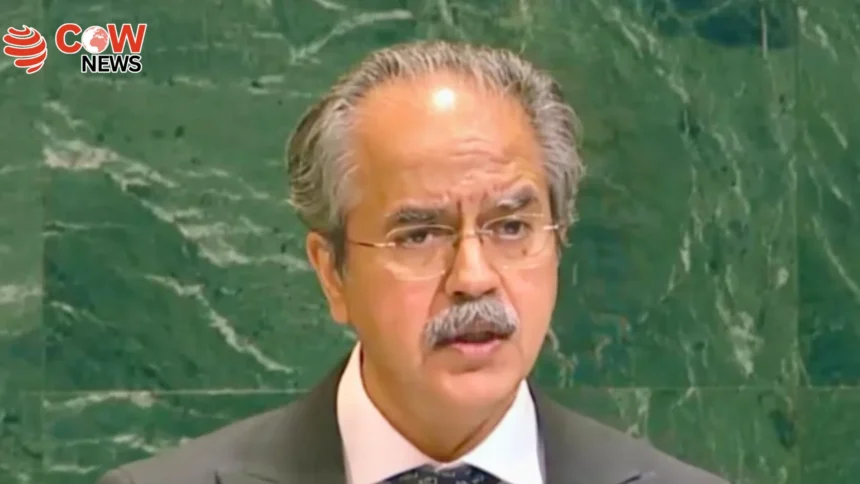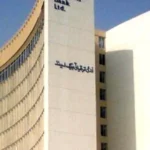New York( The COW News Digital)During a high-level debate at the United Nations General Assembly this week, Pakistan’s Permanent Representative to the UN, Ambassador Asim Iftikhar Ahmed, urged the international community not to abandon Afghanistan. He emphasized that only a practical and engaged approach can lead to durable peace in the neighboring country.
Ambassador Iftikhar began his address by expressing gratitude to the UN for facilitating the discussion and emphasizing the deep ties between Pakistan and Afghanistan. “We are not just neighbors by geography but by history, culture, language, religion, and civilization,” he stated. For Pakistan, a peaceful Afghanistan is a natural and essential imperative.
He reviewed Afghanistan’s long history of turmoil: forty years of war, foreign interventions, and terrorism, which have left it mired in devastation, displacement, instability, and spillover effects into adjoining territories, including Pakistan.
He acknowledged the relative calm that Afghanistan currently experiences under the Taliban-led interim government, which has been in power for nearly four years. Nevertheless, he cautioned that peace remains fragile, and new hopes are emerging for stability only if inclusive governance and international collaboration endure.
Ambassador Iftikhar laid out a vision of a harmonious Afghanistan—one in which every citizen, regardless of gender, ethnicity, political affiliation, or belief, is accorded dignity and justice, and where the country participates positively in global affairs. While progress is underway, urgent challenges persist: restrictions on personal freedoms, an inactive banking system, cash shortages, poverty, waning humanitarian aid, terrorism, drug trafficking, and human rights violations.
He warned that Afghanistan still serves as a staging ground for terrorist groups—particularly proxy outfits targeting Pakistan. These include ISIS-K, Al Qaeda, TTP, BLA, and the JeM-affiliated Majid Brigade. He noted that TTP militants have carried out recent attacks inside Pakistan, armed with weapons left behind in Afghanistan post-foreign withdrawal.
Achieving a stable Afghanistan requires recognizing that the interim government exerts control over its territory—denying room for steps that reignite conflict. He reiterated Pakistan’s willingness to work with the Taliban government and expressed support for diplomatic channels such as the Doha process, Moscow Format, SCO, and regional trilateral mechanisms with China.
Ambassador Iftikhar emphasized four concrete and interlinked priorities:
- Humanitarian support – Only 15.7% of the $2.42 billion humanitarian appeal for 2025 has been funded so far. He urged UN members to fully and unconditionally finance the plan.
- Economic revitalization – Releasing frozen assets, restoring banking services, and encouraging investment and trade through regional infrastructure projects such as TAPI, CASA‑1000, Uzbekistan–Afghanistan–Pakistan railway, and expanding CPEC.
- Security assurances – Preventing Afghanistan from becoming a safe haven for terrorists. Pakistani law enforcement has seized Afghan-based weapon caches linked to attacks within Pakistan.
- Protection of human rights – Pakistan expressed concern over restrictions on women and girls, particularly in education, and welcomed UN-backed efforts to support displaced farmers and expanded schooling under programs like the Islamabad Declaration.
Pakistan has hosted over a million undocumented Afghans since 2021 despite its resource limitations. Ambassador Iftikhar stressed that this burden must be shared equitably by the global community.
Pakistan’s unified message to the UN is clear: isolation, sanctions, or indifference will only deepen poverty, displacement, and regional instability. Instead, a coordinated and principled engagement is essential to realize a unified vision—a secure, prosperous, terrorism-free Afghanistan that honors the fundamental rights of its people and contributes to regional harmony.
Ambassador Iftikhar concluded with a strong commitment from Islamabad: “Pakistan stands ready to play its constructive role, if only the world matches the opportunity with policy and purpose.”







